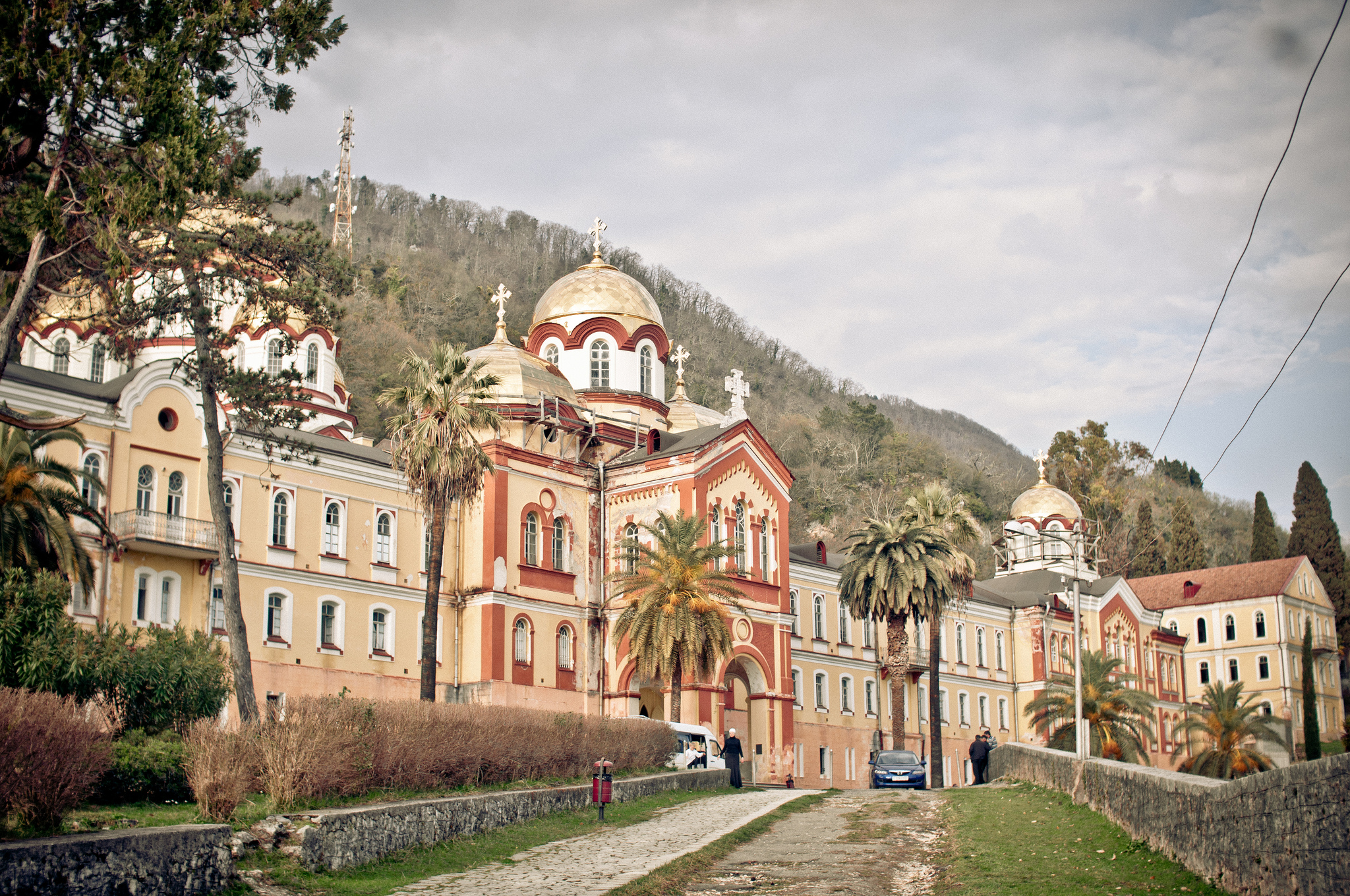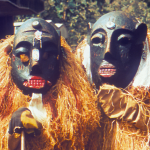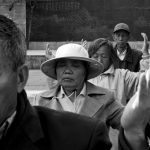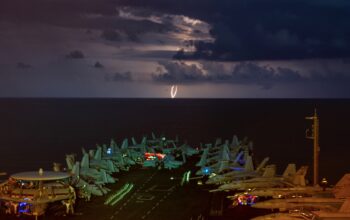Imagine you live your entire life in one place, but one day, suddenly you’re told that you have to leave, and that you will be shot if you do not. This has happened many a time in human history, be it indigenous people being expelled from their homelands, or ethnic cleansings taking place during wars. In most cases, it is the minority or a technologically inferior indigenous population that is being persecuted. However, there are exceptions – and Abkhazia is one of them.
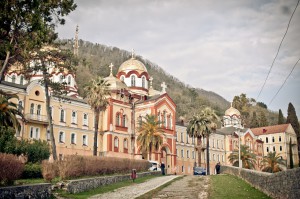
Abkhazia is a region in the north-west of Georgia, with its own language, culture, and a long history of violence. Colonised by the ancient Greeks, it later on became a frontline between the Byzantine Empire and various outside threats. In the 780s, the Kingdom of Abkhazia was established, and it flourished for more than 200 years, until it was incorporated into the Georgian Kingdom through succession. Weakened by numerous invasions by Mongols, infighting and economic decline as a result of being isolated from the rest of the Christian world, Georgia fell under Turko-Iranian influence after 1400. Following a power struggle between the Russian and Ottoman Empires over the region, more than 40% of predominantly Muslim Abkhazians were expelled from the region. Ethnic Georgians soon took their place, and the Abkhazians became a minority in their own country.
Following the fall of the Soviet Union, Abkhazia, just like Georgia, longed for independence. By then, ethnic Georgians made up almost half of the population. In 1992, only months after an unsuccessful war with the breakaway region of South Ossetia had come to an end, Georgia waged war against Abkhazia over the question of Abkhazia’s independence. As a result of Russia backing Abkhazia, Georgia had to back off after a year. Today, South Ossetia and Abkhazia, just like Transnistria and Nagorno-Karabakh, with whom Abkhazia forms the Community for Democracy and Rights of Nations, are frozen conflicts. Their autonomy and borders remain disputed, and without outside support from Russia or Azerbaijan, none of them would be able to survive economically or politically.
During and after the 1992-1993 war, the Abkhazian side pursued a policy of ethnic cleansing. Between 8,000 and 10,000 Georgians were killed, and between 200,000 and 250,000 became internally displaced persons, making the Abkhazian territory deplete of inhabitants of Georgian ethnicity. While about 50,000 have returned to Abkhazia’s southernmost province of Gali, many still remain within Georgia proper.
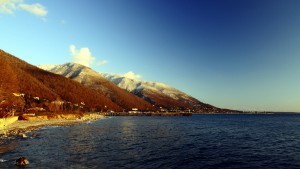
Lika Kvaratskhelia is one of those who left and never returned. She was born in Ukraine during the war, as her parents had sought refuge there. They stayed in Ukraine and later moved back to Georgia. As most of her family moved back to the Gali district after the war, she has travelled to Abkhazia on various occasions. To her, Abkhazia is a beautiful country, but still overshadowed by the scars the war has left. One can still find scorch marks and bullet holes on walls, and there are still buildings around that clearly were reconstructed from ruins.
Economic mismanagement, a weak administration and a high corruption have so far hindered the reconstruction of the country. In the home village of her grandparents, abductions still occur frequently, with subsequent extortion of the victims’ relatives, and one time, Lika’s grandparents were robbed by eight men in their own home and badly injured in the process. In 2008, a marauding band of Russian soldiers came to the village from the nearest military base, occupied a house, plundered the village and raped at least three of Lika’s neighbours at the time.
Although she always was open about being Georgian, even in Abkhazia’s capital of Sochumi, Lika was never met with hostility by the locals. Common Abkhazians tend to blame the Georgian government and its “puppeteer”, the USA, for the bad blood between the two countries, while Georgians – including Lika – tend to blame Russia.
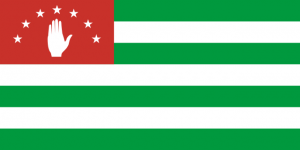
Indeed, Russia has a huge influence on Abkhazia. Russia was the first country to recognise Abkhazia in 2008 and since Abkhazia lacks international recognition, most people use Russian passports to travel outside of the country. Russia is Abkhazia’s major trading partner, with more than 60% of Abkhazia’s exports and imports flowing between itself and Russia, and the Rubble being Abkhazia’s official currency. Since 2008, a vast majority of the country’s profitable tourist industry is financed by Russian tourists, and most of the media are Russian in language as well. Further, the Abkhazian and Russian military are deeply integrated, and Abkhazia has relinquished control over its borders to the Russian Federation. In the Abkhazian public sphere, pictures of Putin and Russian Flags are ubiquitous. Russia is presented as a caring big brother of the feeble nation of Abkhazia, and Putin as the strong man that keeps the Georgian enemy away.
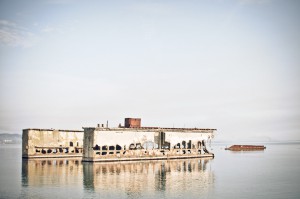
In the end, the fate of Abkhazia is that of a frozen conflict. Diplomatic relations between the two countries have been cut off, and the views of the common people are not exactly reconciliatory either. Like other Georgians, Lika thinks that Abkhazia rightfully belongs to Georgia. Abkhazians, on the other hand, still see their culture and heritage threatened by Georgia, as evidenced by the 1998 onslaught on the Gali region and the political crisis of 2014, when the acting president at the time, Aleksandr Ankvab, was ousted from his position over accusations that his liberal policies towards the Gali Georgians would endanger Abkhazia as a whole. The Russian Federation also continues its aggressive stance towards the helpless Georgia, silently annexing Georgian territory around South Ossetia by moving its border ever further south.
For Abkhazia, a bright future is still very distant. As long as peoples’ attitudes and those of the governments don’t change, there will be no chance for reconciliation and international recognition. The heavy involvement of Russia in Abkhazia begs the question whether Abkhazia in its quest of ousting the Georgian “oppressors” has not been occupied by a much larger actor.
By Michael Schätzlein
Image credit:
Picture 1, 4: Marco Fieber, licensed under CC BY-NC-ND 2.0
Picture 2: mikesub, licensed under CC BY-NC-ND 2.0
Picture 3: Wikipedia, licensed in the public domain
